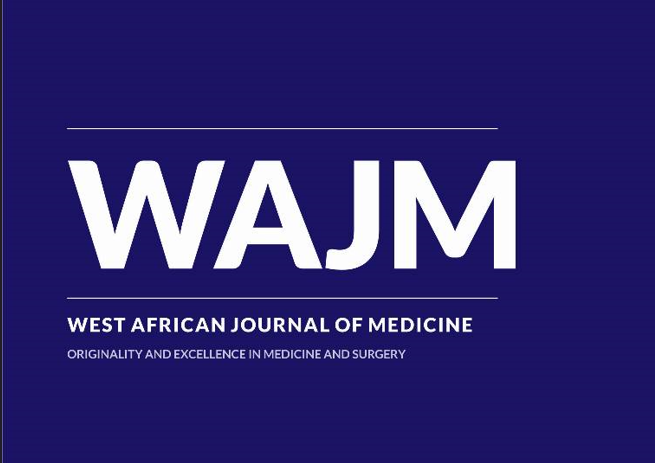ORIGINAL: Selenium Deficiency as a Risk Factor for Peripartum Cardiomyopathy
West African Journal of Medicine 2024 February; 41(2): 209-214 PMID: 38583094
Keywords:
Peripartum Cardiomyopathy, Risk Factor, Selenium DeficiencyAbstract
Background: Peripartum cardiomyopathy (PPCM) is a multifactorial disease. Although the specific aetiology and pathogenesis of PPCM are unknown, several hypotheses have been proposed, including selenium deficiency. However, the risk of PPCM from selenium deficiency was not previously quantified. This posthoc analysis of peripartum cardiomyopathy in Nigeria (PEACE) registry data aimed to determine if selenium deficiency is an independent risk factor for PPCM.
Methods: Apparently healthy women who delivered within the previous 8 weeks and PPCM patients in Kano, Nigeria, were compared for selenium deficiency (<70µg/L) and other relevant socio-demographic and clinical characteristics. Selenium level was measured at recruitment for each subject. Independent predictors of PPCM were determined using logistic regression models.
Results: 159 PPCM patients and 90 age-matched controls were consecutively recruited. 84.9% of the patients and 3.3% of controls had selenium deficiency. Selenium deficiency independently increased the odds for PPCM by 167-fold while both unemployment and lack of formal education independently increased the odds by 3.4-fold.
Conclusion: Selenium deficiency was highly prevalent among PPCM patients in Kano, Nigeria, and significantly increased the odds for PPCM. These results could justify screening of women in their reproductive years for selenium deficiency, particularly those living in regions with high incidence of PPCM. The results also call for the setting up of a definitive clinical trial of selenium supplementation in PPCM patients with selenium deficiency, to further define its benefits in the treatment of PPCM.


